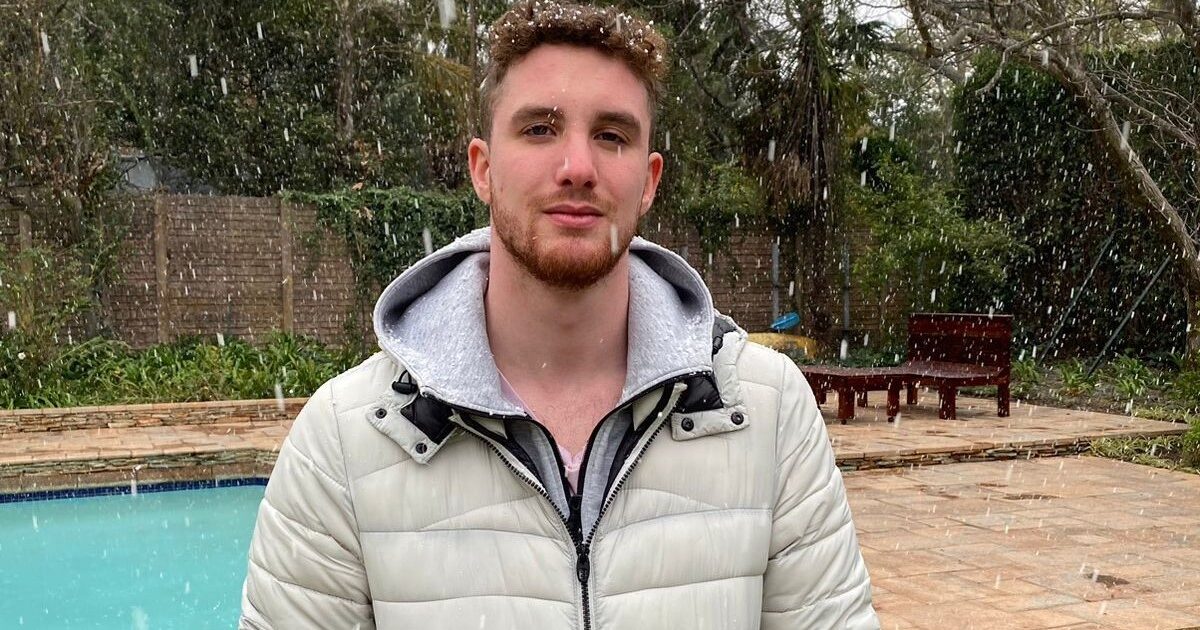Featured Item
Cheering on change – first-time voters make their mark

First-time voters went out in their numbers in order to take a stand in their future South Africa in the country’s national elections on Wednesday, 29 May. The SA Jewish Report spoke to many first-time voters about their experience and their hopes for the outcome.
Kayla Lowenstein, a 22-year-old BCom student said, “Voting in the South African elections is crucial as it empowers citizens to influence government decisions, hold leaders accountable, and ensure their voices are heard in shaping the country’s future. Democratic participation is essential to address issues like economic inequality, social justice, and corruption, thereby fostering a more inclusive and equitable society.”
Matthew Kimmelman, 22, agrees. “It’s important for us to vote to show that we’re not just at the whim of a government that doesn’t represent us. It’s hard to complain about the African National Congress [ANC] if you’re not willing to do something to make change. The easiest thing any one individual can do to spark change is simply to go out and vote.”

An anonymous Business Science Analytics student at the University of Cape Town (UCT) said, “Voting is a right and a privilege. Once I’m allowed to have a say in my future in South Africa, I’m going to take it.”
The youth haven’t taken the decision which party will get the “X” on their ballot lightly, and many spent time researching the different parties and what they could do for them.
Michael Tankle, a 20-year-old Mathematical Sciences student at the University of the Witwatersrand, said he read the manifestos of certain parties and decided who he was going to vote for based on what the manifesto could do for him and the whole of South Africa.
Eli Worms, a 20-year-old Varsity College student said, “My decision who to vote for is rooted in an assessment of the actions and principles of various political parties. For instance, if a party advocates policies or values that I find disagreeable, I opt not to support it.
“Considering the state of South Africa, it’s imperative to choose a party capable of revitalising the nation and restoring its prominence on the global stage. I believe South Africa has the potential to emerge as one of the premier places to live in the world.”
Ruby Kapeluschnik, a Bachelor of Arts in Law student at UCT, spent a lot of time studying the South African legislature, engaged in many discussions about the different parties, and researched which party would get her vote.
Many factors outside of their research influenced their vote, such as ongoing corruption and the views of those around them. Said Kimmelman “It’s easy to decide who to vote for when you’re sitting in your third stint of loadshedding for the day. The truth is, I don’t need to be influenced by those around me to see that something needs to change, and splitting the vote among smaller parties isn’t a solution either.
“Also, I believe the ANC has made us a laughing stock, not only in Africa but around the world, while aligning us closer to the ‘axis of evil’ – Russia, Iran, China, and North Korea. Another five years of that trajectory will be a net negative.”
“All of the parties are pretty much useless,” said Tamir Lipschitz, a third-year student at the University of Pretoria, “but the one I’m voting for is both the least useless and the direct opposition to the ruling party – which happens, arguably, to be the most useless. Therefore it was a ‘no-brainer’.”
Students at UCT have been exposed to the political environment firsthand. “You’re able to see all the parties and how they behave on an intimate level,” said an anonymous UCT student, “so I’m very much able to come to my own conclusions about how I feel about the parties.”
An anonymous 21-year-old University of Johannesburg student said, “I didn’t need to conclude who to vote for. I think we’re all conditioned to vote for certain parties”.
Similarly, Jaime Tarlie, an 18-year-old completing her A levels, said that even though she wasn’t interested in politics, she knew it was important for her to have her voice heard, and has been educated about who to vote for. “I’ll be voting for the party that my parents vote for,” she said. “My dad is clued up on everything going on, and I trust his judgement more than my own. Even though it’s not completely just, I believe it’s the best thing I can do in the circumstances.”
Worms hopes for a “significant reduction in corruption”. Though it may be impossible to completely eradicate it, he said, “addressing it is crucial, considering that corruption exists to some extent in every country. I also hope these elections will remove all the rules and regulations hindering South Africa from competing effectively on the global stage.”
Tankle, like many first-time voters, hopes for “any sort of positive change, policies that address the issues being faced in the country, and greater representation”.
Kimmelman hopes that “this election won’t further divide our country, but rather bring us closer. I hope that if the cards align and people go out and vote, there will be a peaceful transfer of power.”
“I hope this election brings positive change to our country,” said Tarlie. “We have a long way to go, but hopefully, this is the start of something productive for South Africa.”
